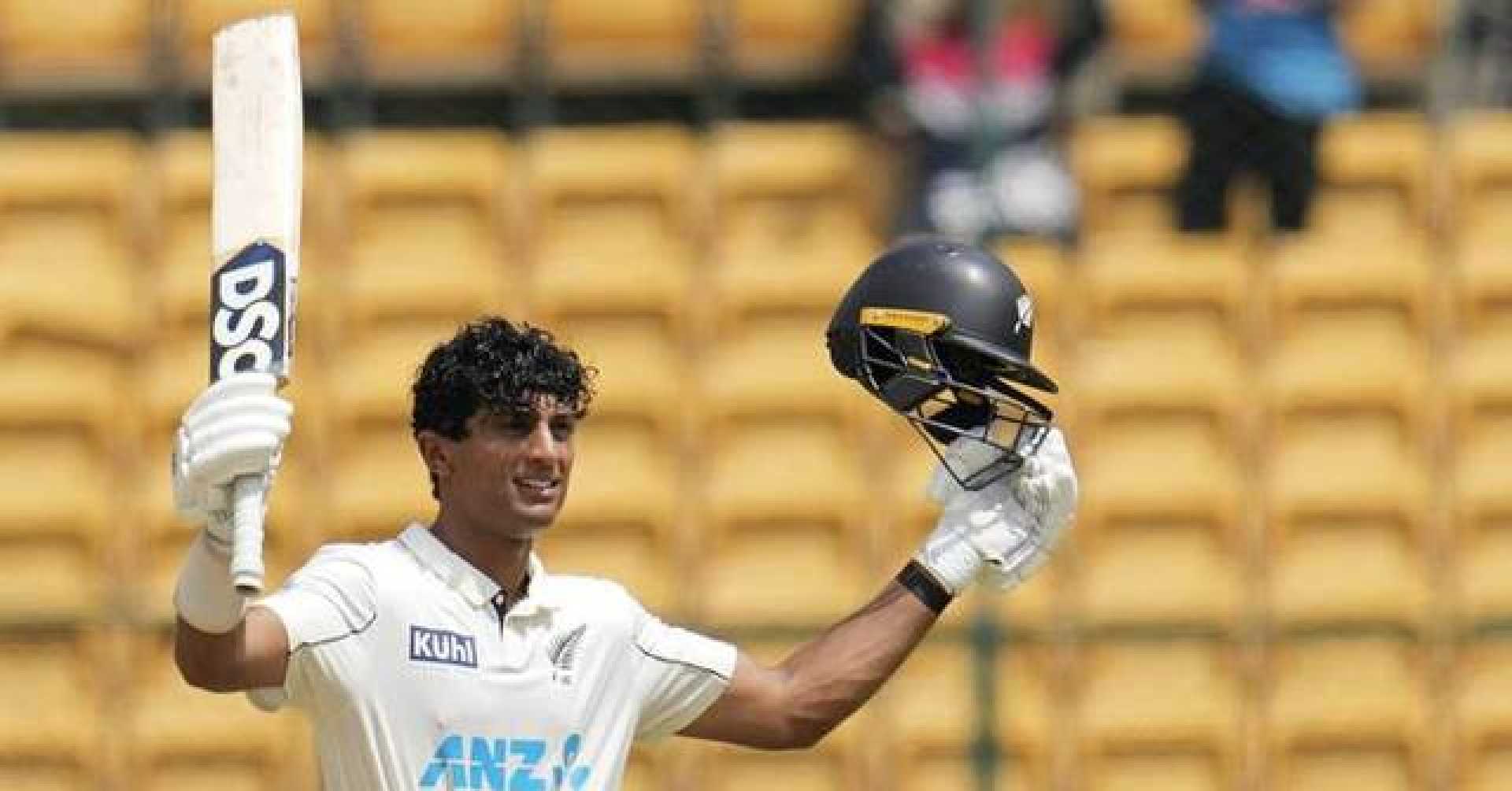Sports
India Struggles at Home: Rachin Ravindra’s Ton Dominates Day 3 in Bengaluru

On the third day of the first Test match between India and New Zealand at the M Chinnaswamy Stadium in Bengaluru, Rachin Ravindra‘s extraordinary century placed the visiting team in a commanding position. The 24-year-old’s innings propelled New Zealand to a formidable total of 402 runs, leaving India trailing by 356 runs.
The day began with New Zealand at 180/3 and concluded with the visitors at a comfortable lead, all thanks to Ravindra’s sublime century. His aggressive stance and well-timed shots were crucial in pushing New Zealand’s score beyond the 400-mark. It wasn’t just Ravindra who shone; earlier, Devon Conway and Tim Southee contributed important half-centuries which set the tone for New Zealand’s innings.
India’s bowling attack, led by Ravindra Jadeja, managed to claim three wickets, but the overall performance was overshadowed by New Zealand’s disciplined batting. Jadeja was the most successful bowler for India, claiming vital wickets, including the pivotal breakthrough of Conway for 91.
On the batting front, India suffered a major collapse, registering one of their lowest totals in a home Test match—a paltry score of 46 runs in the first innings. The Indian lineup struggled profoundly against New Zealand’s pacers, Matt Henry and William O'Rourke, whose accuracy and skill proved to be unplayable for most Indian batsmen.
New Zealand’s bowlers, particularly Henry and O’Rourke, displayed exceptional control and seam movement, causing significant difficulties for the Indian batsmen. Notably, five Indian batsmen, including Sarfaraz Khan and Yashasvi Jaiswal, were dismissed without scoring, adding to the team’s woes.
The second innings saw a revised approach from the Indian openers Rohit Sharma and Jaiswal, who attempted to adopt a more aggressive stance to mitigate their first innings damage. However, the duo faced a resilient Kiwi bowling attack, with Tim Southee making life difficult with precise deliveries.
To compound India’s troubles, key player Rishabh Pant was absent from the field due to a knee injury sustained while wicketkeeping on the previous day. Dhruv Jurel served as a substitute, with skipper Rohit Sharma stating the substitution was a precautionary measure.
Post-match analysis largely focused on India’s decision to bat first amidst unpredictable weather conditions, a choice that backfired significantly. Rohit Sharma, addressing the press, accepted responsibility for misjudging the pitch’s nature, anticipating conditions that would ease for batting sooner than they did.
This setback serves as a harsh reminder to the Indian team, with their batting strategy coming under scrutiny. As India gears up for the next match in Pune, the team must reassess and adapt their approach to counter New Zealand’s formidable form.












